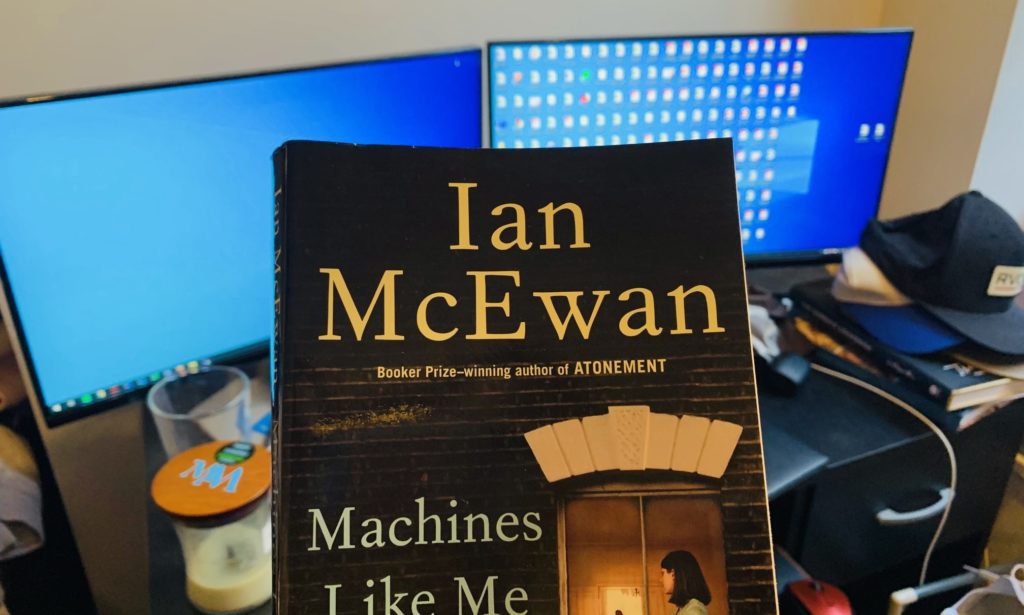Spending the past year stuck inside a shrunken version of our former lives, where our bedrooms are offices and kitchens replace favorite late-night haunts, it’s easy to observe our reliance on technology. In fact, during COVID, one might argue we simply could not live without it. Our computers bring grandparents, friends, colleagues and classmates into our living rooms, crossing the distance between the Inside and the Outside. We increasingly rely on delivery apps for meals and groceries. We set up telehealth appointments on Zoom and attend virtual court hearings and weddings. Algorithms run our lives; turn on any major news network, and you’ll hear about political polarization made possible by algorithms, songs made more popular by algorithms, information uncovered thanks to… algorithms. But in Ian McEwan’s novel Machines Like Me, algorithms are not just all around us — they are us. In his modernized Frankenstein, McEwan skips over the ambiguity of technological sentience and brings us a robot that, for all intents and purposes, is human.
The year is 1982. In a sad south London flat, 32-year-old Charlie, an online day-trader with virtually no social life and a history of tax fraud, decides to spend his inheritance on an £86,000 human robot named Adam, one of just 25 Adams and Eves released for purchase. Tasked with programming his new friend with a customizable personality, Charlie enlists the aid of his 22-year-old upstairs neighbor, Miranda. Charlie is in love with the doctoral student, and imagines that Adam will be something they can create together, something to bond them. But it turns out to be a bit more complicated. The machine will come between them. Even though he can’t eat or drink, and uses a power socket connected to his belly button to charge each night, Adam’s humanity is evident — so much so that in one pivotal scene, Miranda rolls over and asks Charlie if he is real. He never answers. Adam falls in love with Miranda, ominously refusing to be powered down.
Miranda’s question is the same question I sometimes ask myself after spending eight hours a day on Zoom calls with co-workers I’ve never met and interacting with friends and family via text or FaceTime. Strangely, but not inconceivably, Adam feels more real than Miranda, a flesh and blood woman. This is because Charlie provides intimate detail of Adam’s physique and their interactions, and virtually no detail about Miranda. Her first few scenes feel ghostly, as though she exists only as a passing thought or remembered anecdote. It takes a while before she speaks. Even the tumultuous events of the outside world feel distant. Although Charlie describes the general political and militaristic background for England’s conflicts with Argentina, it feels like the outside world exists separately from his life and plot line with Adam and Miranda.
Ultimately, McEwan isolates Charlie and the reader together, surrounded by bots and algorithms. In many ways, events in Machines Like Me are already happening, at least on a more nuanced scale. From the moment Adam opens his eyes, Charlie, Miranda, and McEwan’s readers have no choice but to grapple with — and accept — his existence, and ours in his world.

